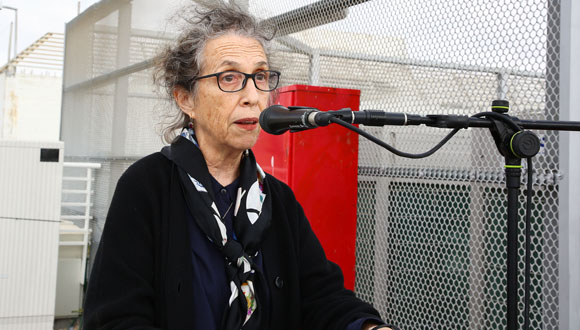
Revolutionizing Mental Health Through Psychedelic Research
Tel Aviv University opens trailblazing interdisciplinary institute
The Institute for Integrative Psychedelic Research was inaugurated recently at Tel Aviv University. The Institute’s primary focus is to foster interdisciplinary research on psychedelics and deepen the understanding of brain-mind-body interactions. With the vision to revolutionize mental health, the Institute aims to become a global leader in the scientific exploration of psychedelics and psychoactive medicine.
Bridging the Mind-Brain-Body Gap
Understanding the connection between neural activity and our emotional-cognitive experiences is a leading question in cognitive neuroscience, psychology, and neuropsychiatry. The “Mind-Brain Gap” refers to the link between our brain functioning and mental experiences, which is not fully understood. Psychedelics, such as LSD, psilocybin, MDMA and ketamine, have shown beneficial clinical effects and provide a unique opportunity to study this complex link.
“I believe the psychedelic neuroscience research could deepen our understanding of the mind’s neurobiological building blocks and how they interact with our bodily sensations, thus bridging the mind-brain-body gap. And it’s a huge gap.” – Prof. Talma Hendler

Prof. Talma Hendler will lead the efforts of TAU’s Institute for Integrative Psychedelic Research (photo: Ofer Amram)
To understand how psychedelics affect the mind, we need to consider various factors that influence consciousness, emotions, social interactions, and motivation. Prof. Talma Hendler is the incoming director of the Center and a psychiatrist and neuroscientist at TAU’s School of Medicine at the Sackler Faculty of Medicine and School of Psychological Sciences at the Gershon H. Gordon Faculty of Social Sciences. She says “psychedelics are a powerful experimental tool with a tremendous potential to clarify fundamental questions regarding the essence of human mental experience. The primary goal of our institute is to promote rigorous academic psychedelic research, exploring the relations between the mind, brain, and body.”
“I believe the psychedelic neuroscience research could deepen our understanding of the mind’s neurobiological building blocks and how they interact with our bodily sensations, thus bridging the mind-brain-body gap. And it’s a huge gap. “
WATCH: The inauguration of the Institute for Integrative Psychedelic Research at Tel Aviv University
“I’ve also been intrigued by the pharmacological changes psychedelics induced at the neuro level, through the process of neuroplasticity, by either forming new neuron-cells or creating new connection synapses in specific brain regions. Such plasticity could explain the significant therapeutic potential of psychedelics for alleviating suffering from otherwise treatment-resistant conditions like suicidal depression, post-traumatic stress disorders (PTSD), chronic pain, and end-of-life distress.”
“Importantly, the combined features of rapid therapeutic effect, neurochemical diversity, and unique, subjective experience positions psychedelics at the forefront of personalized medicine.”
Revolutionizing Mental Health
The Institute for Integrative Psychedelic Research is led by esteemed academic figures, including Prof. Hendler; Dr. Haggai Sharon, a pain specialist and neuroscientist; and head of the Sagol School of Neuroscience, Prof. Yossi Yovel.
Operating under the auspices of TAU’s Sagol School of Neuroscience, with medical operations at the Tel Aviv Sourasky Medical Center (Ichilov), the Institute aims to promote rigorous academic research and explore the relations between the mind, brain, and body.
The inauguration ceremony of the Institute drew a large crowd to TAU’s beautiful new Coller Terrace at the Lorry Lokey building (photo: Ofer Amram)
A Multidisciplinary Endeavor
The Institute encourages interdisciplinary research, embracing the biopsychosocial model of health and wellbeing. It fosters collaborations between various academic areas, including neuroscience, psychology, anthropology, philosophy and policy and ethics. By integrating different disciplines, the Institute aims to build a comprehensive and unified scientific understanding of psychedelics.
Between Bench and Clinic
Tel Aviv University, with its strong ties to 19 affiliated hospitals and partnership with government ministries and pharma companies, is well-positioned to bridge the gap between laboratory discoveries and clinical applications.
Furthermore, the University’s multidisciplinary scientific environment brings together researchers from diverse fields, facilitating advancements in translational and basic medicine.
Generous Contributions
The establishment of the Institute for Integrative Psychedelic Research was made possible by the generous contributions of Mr. Jeremy Coller, Dr. David B. Katzin, and Dr. Dmitry Repin. These visionary donors believe in the transformative potential of the Center’s research endeavors.
Stay updated with upcoming Call for Applications and research publications to learn more about the Institute’s progress on the Sagol School of Neuroscience website.
Original post:

